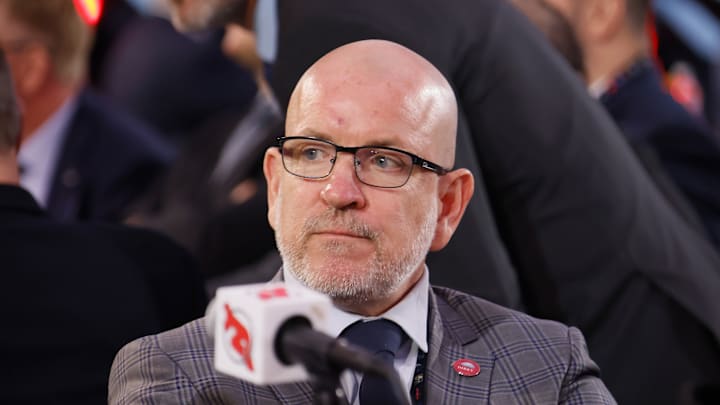It has become quite apparent that Tom Fitzgerald and the New Jersey Devils have more work to do to make this roster one that can truly compete for a Stanley Cup, but that process is going to take more time than anticipated.
In Fitzgerald's eyes, the Devils must stay patient as the NHL's salary cap landscape rapidly changes, benefiting buyers significantly more than sellers at this point in time.
“Not every team is built the same way. There's only one Montreal Canadiens and New York Rangers, and Toronto, and then everybody else tries to make money differently. Not every team has the same automatic revenue, and unless they can figure out creative ways to overcome that in other areas than just the game, they’re going to have internal caps," Fitzgerald told RG Media in a recent interview.
“I think the rising cap has affected the market because it has become more of a buyer's market. The problem is that with more teams having the space, there are fewer sellers.”
It's a well-know fact that, at some point, the Devils are going to have to make a trade not only to upgrade the roster, but to clear cap space to become cap-compliant.
Right now, the Devils can place the injured Johnathan Kovacevic on LTIR and save his $4 million cap hit until he's ready to come back, but after that, assuming Luke Hughes's next contract exceeds their current buffer of $6.1 million, something else will have to give.
Fitzgerald's view of the cap situation doesn't necessarily clear up confusion around someone like Ondrej Palat, for example. With more teams having more cap space, there should be more suitors willing to absorb that $6 million cap hit for a sweetener.
Doing something there would be New Jersey's least restricting path forward, but Palat can only be traded to 10 other NHL teams per his contract's trade protection.
So, while it's nice Fitzgerald gave his side of the story thus far, lots of work remains to be done in the coming weeks.
